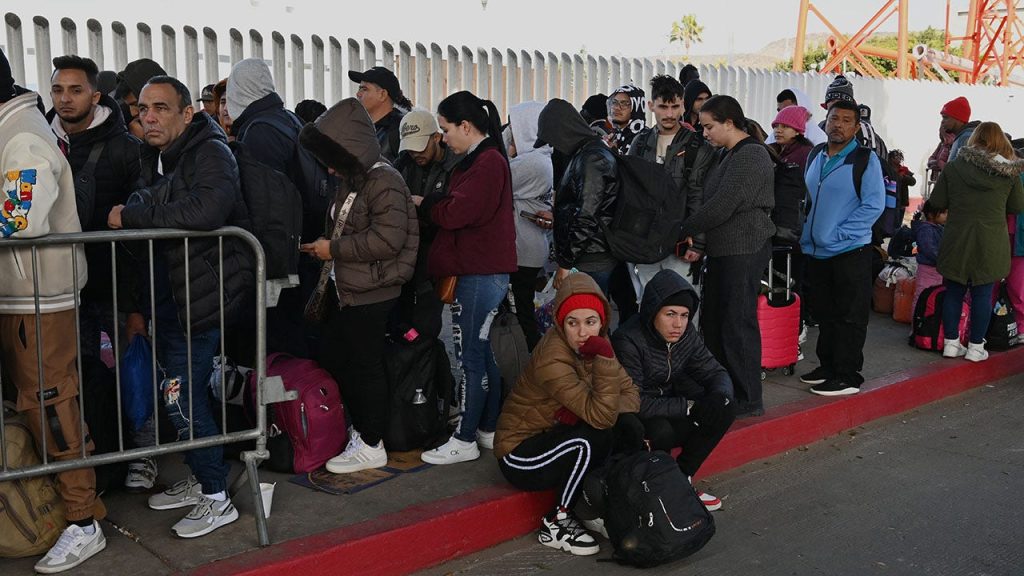The states of Louisiana, Kansas, Ohio, and West Virginia have initiated legal action against the U.S. Census Bureau, challenging the inclusion of undocumented immigrants in the population count used for apportioning congressional seats and electoral votes. Filed in a Louisiana federal court, the lawsuit contends that the Biden administration’s decision to incorporate these figures from the 2020 census has led to a redistribution of political power, disadvantaging the plaintiff states. Specifically, Ohio and West Virginia claim to have each lost a congressional seat and an electoral vote due to this practice, while Texas gained a seat and vote, and California retained both, allegedly due to their larger populations of undocumented immigrants and temporary visa holders. The plaintiff states further argue that Louisiana and Kansas are also at risk of losing representation in the 2030 reapportionment if the current methodology persists.
Central to the lawsuit is the argument that the Census Bureau’s “Residence Rule,” which counts all foreign nationals residing in the U.S. regardless of their legal status, violates the Fourteenth Amendment’s equal representation principle. The attorneys general contend that including undocumented immigrants in the apportionment count effectively transfers political representation from states with lower numbers of undocumented immigrants to those with higher numbers. This, they argue, dilutes the voting power of citizens in the plaintiff states and unfairly empowers states with larger undocumented populations. They assert that the Constitution mandates an “actual enumeration” of “persons” within each state, a term they interpret as encompassing only U.S. citizens and lawful permanent residents. This interpretation, they claim, is rooted in the historical understanding of the term at both the Founding and during the Reconstruction era. They maintain that undocumented immigrants, lacking the right to vote, should be excluded from the apportionment count altogether.
The plaintiffs further argue that the inclusion of undocumented immigrants in the apportionment calculation violates Article II, Section 1 of the Constitution, which governs the distribution of Electoral College votes among the states. By artificially inflating the populations of certain states, they assert, the current practice distorts the allocation of electoral votes and undermines the principle of equal representation enshrined in the Constitution. They cite the concentration of undocumented immigrants in a relatively small number of states as exacerbating the impact on the distribution of both congressional seats and electoral votes. They emphasize that this practice effectively grants disproportionate political influence to states with larger undocumented populations, thereby undermining the democratic process.
The states underscore the significant impact of undocumented immigration on political representation, citing research indicating approximately 11.7 million undocumented immigrants residing in the U.S. They argue that this demographic trend, characterized as the largest wave of immigration in American history, has profound consequences for the allocation of political power. By including undocumented immigrants in the apportionment count, the lawsuit contends, the Census Bureau is transferring voting power from citizens in some states to others, thereby creating an uneven playing field and undermining the principle of one person, one vote. This, they argue, distorts the democratic process and disenfranchises citizens in states with smaller populations of undocumented immigrants.
The plaintiffs’ interpretation of the term “persons” in the Constitution as excluding undocumented immigrants contrasts with the Census Bureau’s broader understanding, which encompasses all individuals residing within a state regardless of their legal status. This divergence in interpretation lies at the heart of the legal dispute. The lawsuit highlights the ongoing debate over the role of immigration in American society and its impact on political representation. The outcome of this case could have significant implications for the future of apportionment and the distribution of political power across the states, particularly given the increasing size of the undocumented immigrant population.
The lawsuit coincides with the beginning of a new presidential administration under Donald Trump, who campaigned on a platform of stricter immigration enforcement. Trump’s pronouncements on mass deportations and his declaration of a state of emergency at the southern border suggest a potential alignment with the plaintiffs’ position. However, the lawsuit’s ultimate impact on the incoming administration’s policies remains uncertain. The courts will ultimately decide whether the Census Bureau’s current practice of including undocumented immigrants in the apportionment count is constitutional, a decision with far-reaching consequences for the balance of power in American politics.










